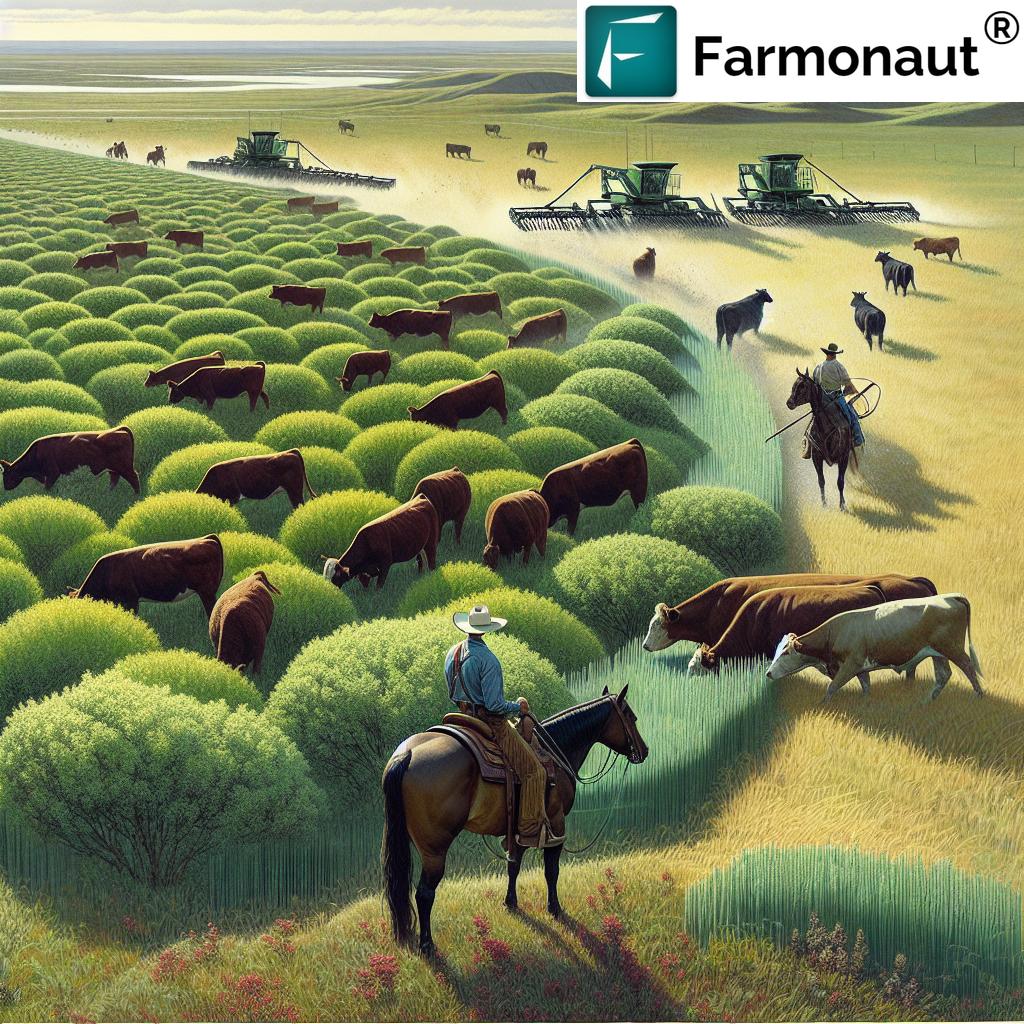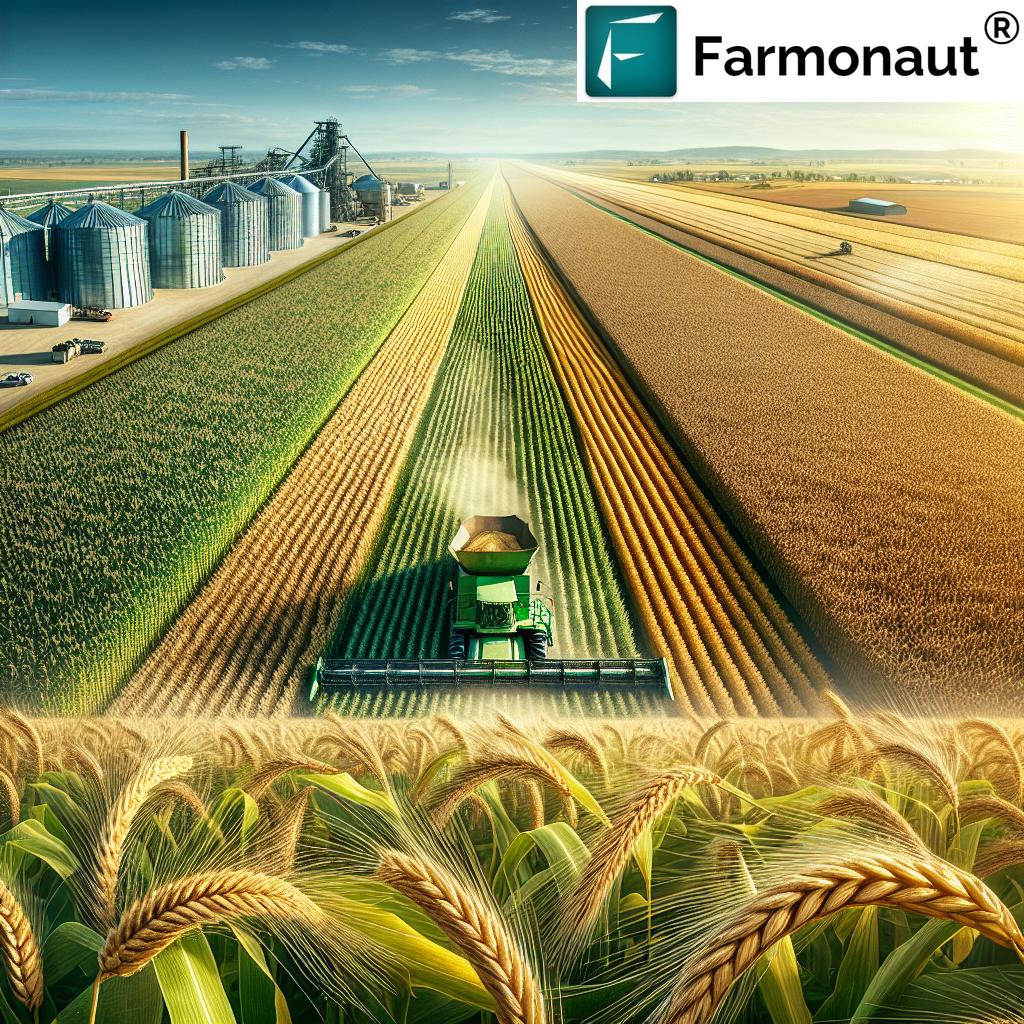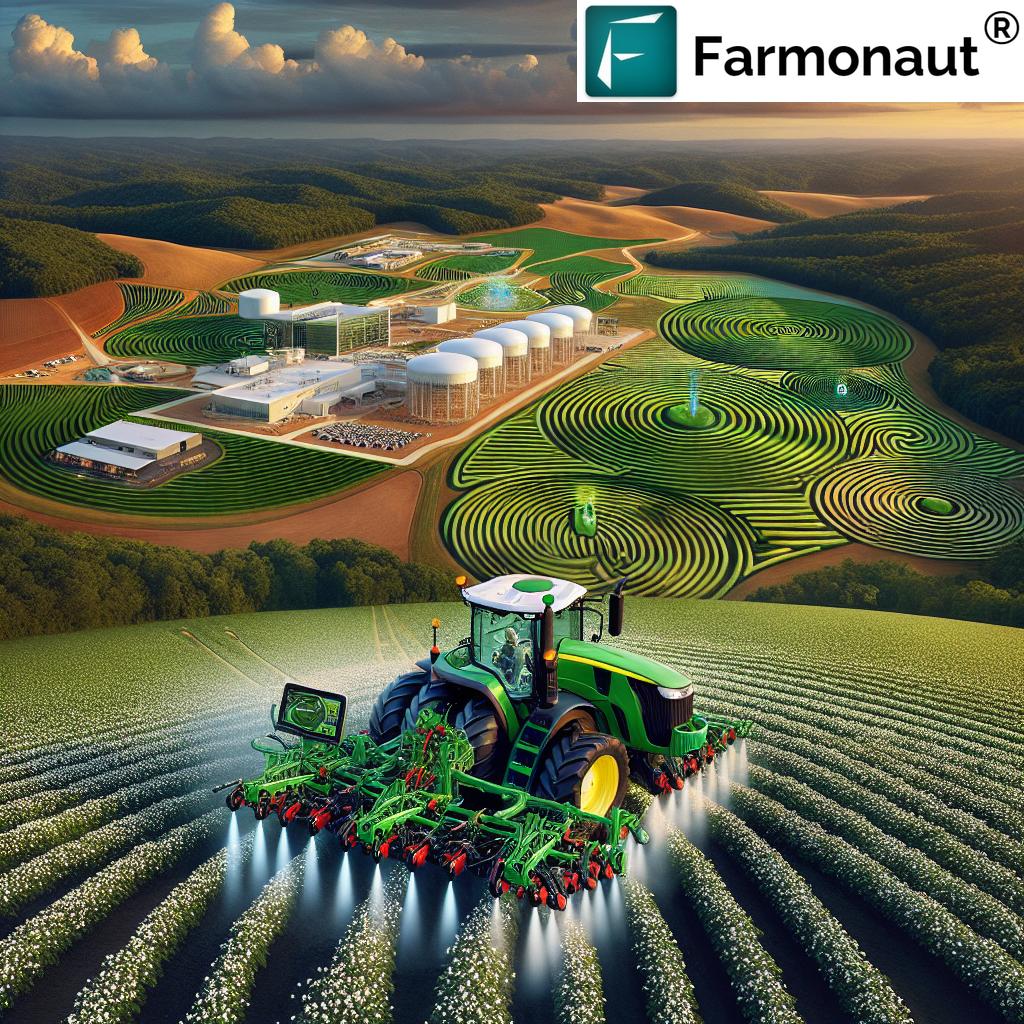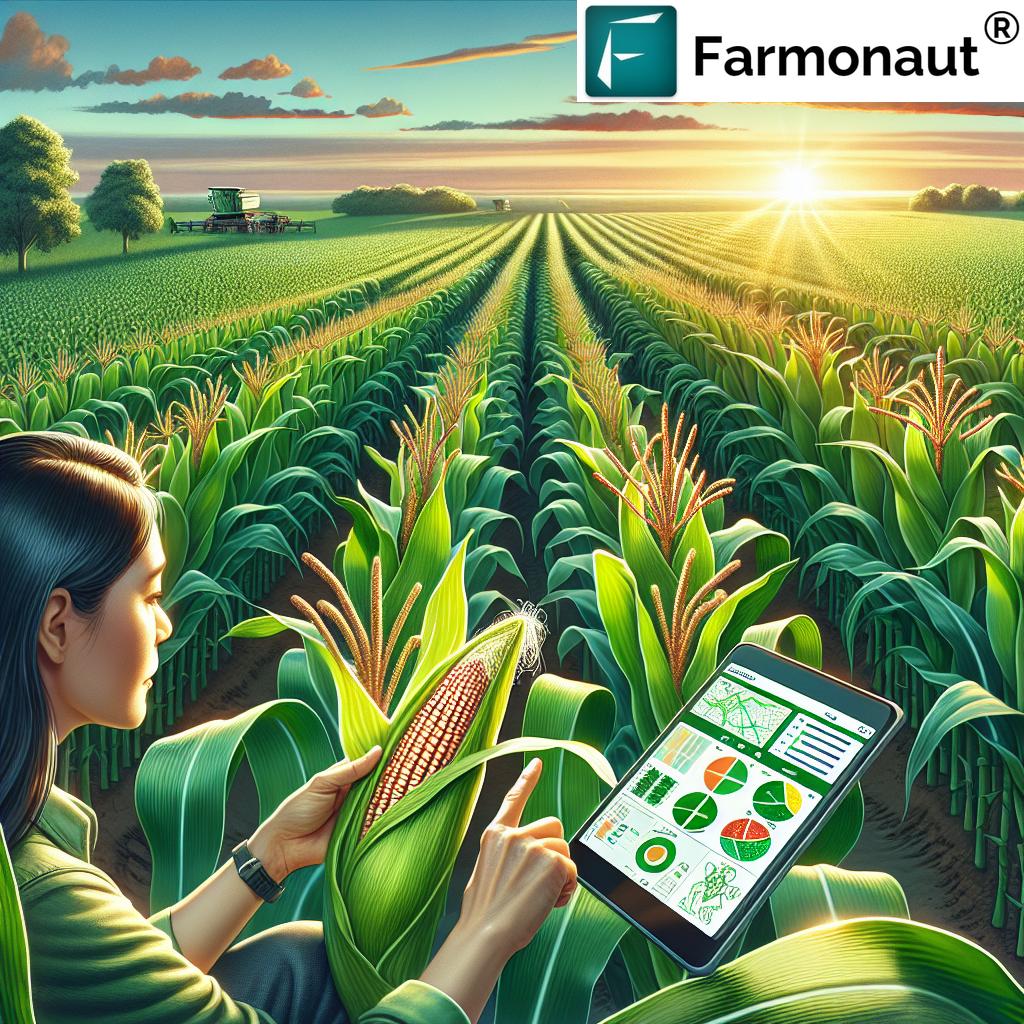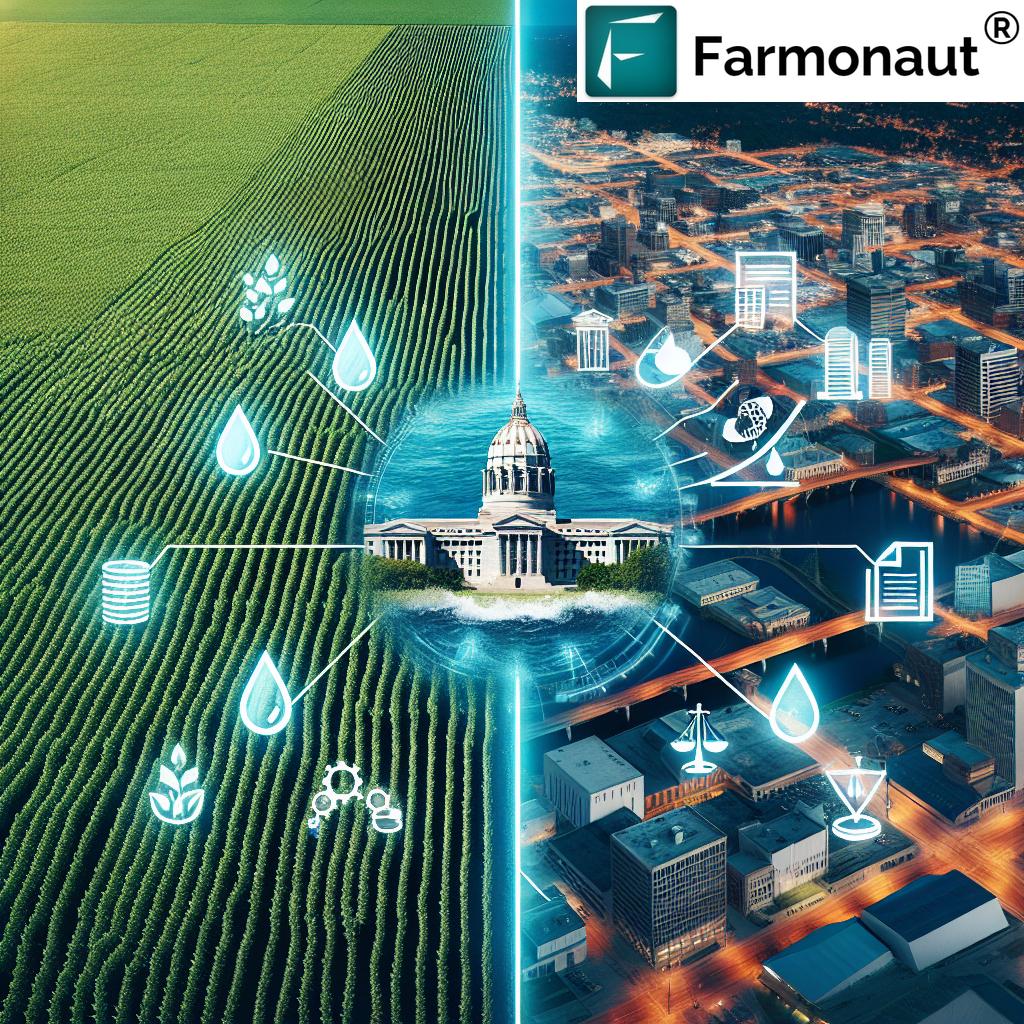Unlocking Nebraska’s Agricultural Potential: Innovative Farming Methods and Rural Community Support with Farmonaut
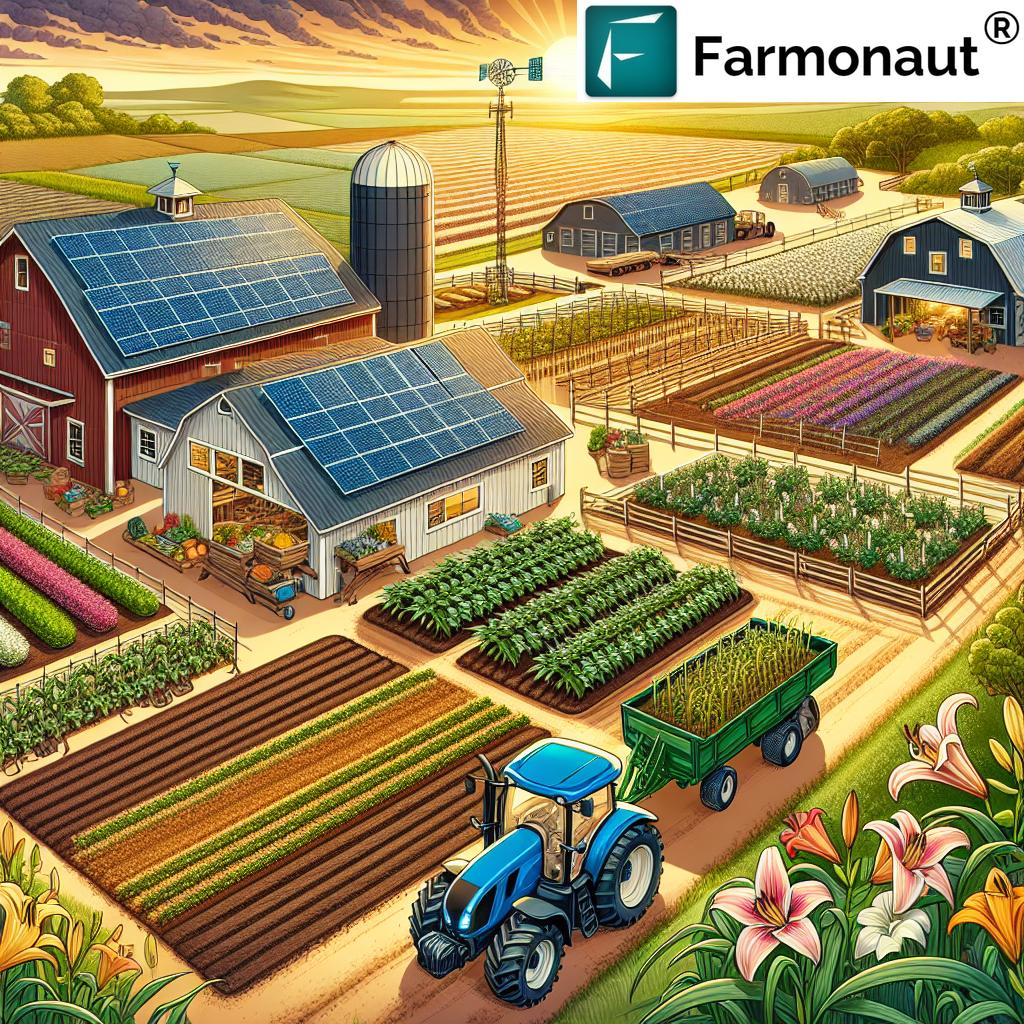
“Nebraska farmers who diversify crops increase their annual income by up to 30% on average.”
Welcome to the heartland of America, where the rolling plains of Nebraska stretch as far as the eye can see. Today, we’re diving deep into the world of innovative farming methods and the resilient spirit of rural communities that are reshaping the agricultural landscape of this great state. Join us as we explore how modern technology, sustainable practices, and community support are coming together to unlock Nebraska’s true agricultural potential.
The Evolution of Nebraska’s Agricultural Scene
Nebraska has long been known for its vast farmlands and agricultural prowess. However, the face of farming in the Cornhusker State is changing rapidly. We’re witnessing a fascinating blend of time-honored traditions and cutting-edge innovations that are propelling Nebraska’s agriculture into the future.
- Embracing sustainable farming practices
- Adopting modern farming technology
- Implementing crop diversification strategies
- Addressing rural infrastructure challenges
These changes aren’t just affecting large-scale operations; they’re transforming small-scale nurseries, family farms, and even backyard gardens across the state. Let’s take a closer look at how these innovations are playing out on the ground.
Sustainable Farming Practices: The New Norm
Sustainability is no longer just a buzzword in Nebraska; it’s becoming a way of life for many farmers. We’re seeing a significant shift towards practices that not only yield bountiful harvests but also preserve the land for future generations.
Conservation Tillage: Protecting Our Precious Soil
One of the most impactful changes we’ve observed is the widespread adoption of conservation tillage methods. By minimizing soil disturbance, farmers are:
- Reducing erosion
- Improving soil structure
- Increasing organic matter content
- Conserving moisture
This approach not only benefits the environment but also helps farmers reduce fuel costs and labor, making it a win-win for both the land and the bottom line.
Precision Agriculture: Doing More with Less
Precision agriculture is revolutionizing the way Nebraska farmers manage their crops. By leveraging GPS technology, soil sensors, and data analytics, farmers can now:
- Apply fertilizers and pesticides with pinpoint accuracy
- Optimize irrigation schedules
- Monitor crop health in real-time
This level of precision not only boosts yields but also significantly reduces waste and environmental impact. It’s a perfect example of how modern farming technology is making agriculture more efficient and sustainable.
Speaking of modern technology, have you heard about Farmonaut? Their satellite-based farm management solutions are taking precision agriculture to new heights. Check out their  to see how you can leverage satellite imagery for your farm.
to see how you can leverage satellite imagery for your farm.
Cover Crops: Nature’s Multitaskers
Cover crops are gaining popularity among Nebraska farmers, and for good reason. These versatile plants offer a multitude of benefits:
- Preventing soil erosion
- Suppressing weeds
- Improving soil fertility
- Enhancing water retention
By incorporating cover crops into their rotation, farmers are seeing improved soil health and reduced need for synthetic inputs, aligning perfectly with organic farming methods.
Agricultural Innovation: From Field to Tech
Innovation in Nebraska’s agriculture sector isn’t limited to the fields. We’re seeing a surge in technological advancements that are transforming every aspect of farm management.
Drone Technology: Eyes in the Sky
Drones have become indispensable tools for modern farmers. These aerial assistants provide:
- Detailed crop health assessments
- Early pest and disease detection
- Precise mapping of field conditions
With this bird’s-eye view, farmers can make informed decisions quickly, addressing issues before they become major problems.
IoT and Smart Farming: The Connected Farm
The Internet of Things (IoT) is bringing Nebraska’s farms into the digital age. Smart sensors and connected devices are now commonplace, offering:
- Real-time monitoring of soil moisture and temperature
- Automated irrigation systems
- Livestock health tracking
These technologies not only improve efficiency but also allow farmers to manage their operations remotely, providing a better work-life balance.
For those interested in leveraging technology for their farms, Farmonaut’s API offers a wealth of satellite and weather data. Developers can explore the API and check out the API Developer Docs for integration details.
Crop Diversification: Spreading the Risk, Reaping the Rewards
Nebraska farmers are increasingly moving away from monoculture, embracing a diverse array of crops to enhance resilience and profitability.
Beyond Corn and Soybeans: Exploring New Horizons
While corn and soybeans remain staples, we’re seeing a surge in:
- Specialty grains like quinoa and amaranth
- High-value vegetable crops
- Niche markets like organic hemp and medicinal herbs
This diversification not only spreads financial risk but also contributes to soil health through varied crop rotations.
Agritourism: Farms as Destinations
Some innovative Nebraska farmers are turning their operations into tourist attractions, offering:
- Farm-to-table experiences
- Educational tours
- Seasonal events like pumpkin patches and corn mazes
This not only provides additional income streams but also helps bridge the gap between urban and rural communities, fostering a greater understanding of agriculture.
Rural Infrastructure: Building the Foundation for Growth
For Nebraska’s agricultural innovations to truly flourish, we need a robust rural infrastructure. This includes:
- High-speed internet access for precision farming and IoT devices
- Improved road networks for efficient transportation of goods
- Modern grain storage facilities to maintain crop quality
- Access to renewable energy sources like wind and solar
While challenges remain, we’re seeing promising initiatives to bridge the urban-rural divide and ensure that rural communities have the resources they need to thrive.
Small-Scale Success: The Rise of Specialty Nurseries
It’s not just large farms that are innovating. Small-scale nurseries across Nebraska are finding success by focusing on unique, high-value crops. Here are some tips for aspiring nursery owners:
- Identify niche markets with high demand and low competition
- Invest in efficient irrigation systems to conserve water
- Utilize greenhouse technology for year-round production
- Develop strong relationships with local restaurants and farmers’ markets
By leveraging these strategies, small nurseries are carving out profitable niches in Nebraska’s agricultural landscape.
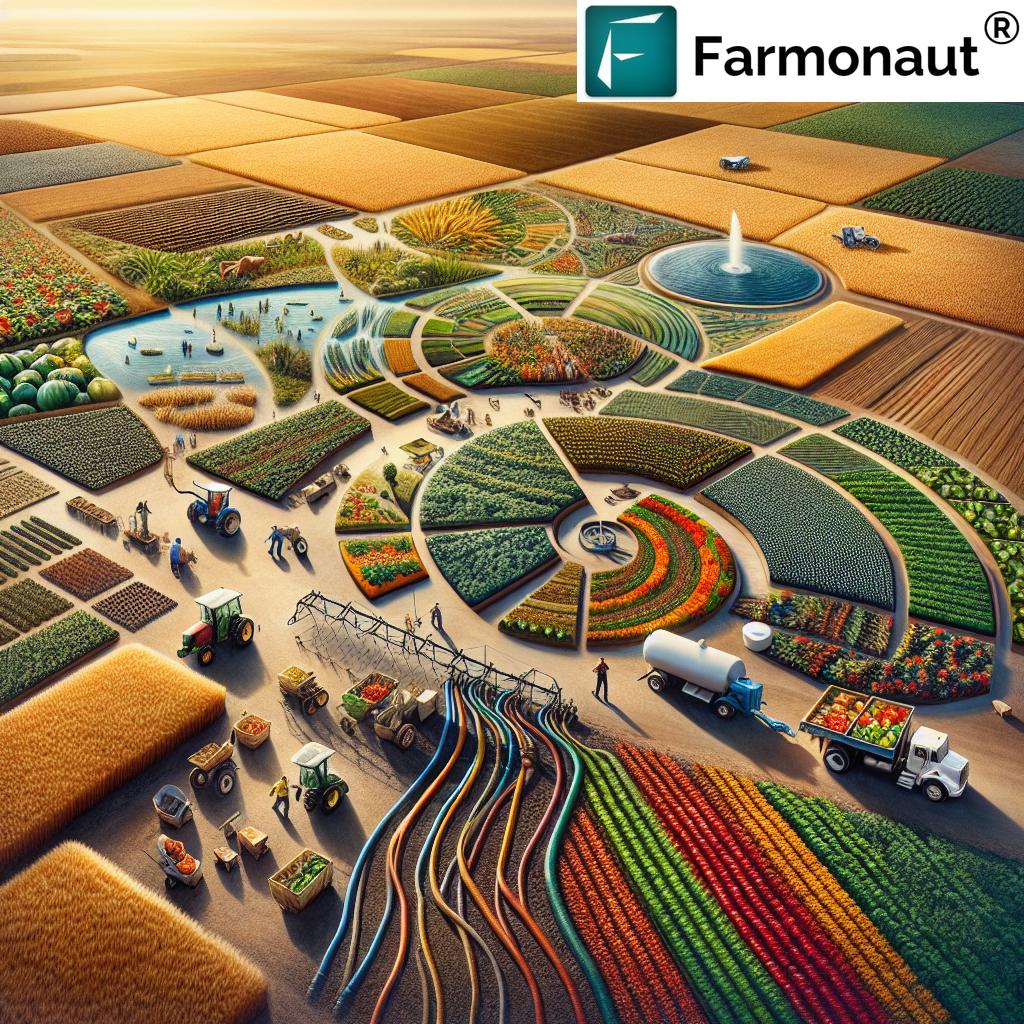
“Over 85% of Nebraska’s rural communities have embraced at least one innovative farming method in the past decade.”
Agricultural Market Trends: Navigating the Future
Understanding market trends is crucial for Nebraska’s farmers to stay competitive. Some key trends we’re observing include:
- Growing demand for organic and locally-sourced produce
- Increased interest in plant-based proteins
- Rising popularity of functional foods and nutraceuticals
- Emphasis on traceability and transparency in food supply chains
By staying attuned to these trends, Nebraska farmers can position themselves to meet evolving consumer demands and capture new market opportunities.
Community Support: The Backbone of Rural Nebraska
The strength of Nebraska’s agricultural sector lies not just in its fertile soil, but in the tight-knit communities that support it. We’re seeing inspiring examples of community support, such as:
- Local food hubs connecting farmers with consumers
- Farmer-to-farmer mentorship programs
- Community-supported agriculture (CSA) initiatives
- Rural entrepreneurship incubators
These initiatives are fostering a spirit of collaboration and resilience that’s essential for the long-term success of Nebraska’s agricultural communities.
The Role of Technology in Modern Farm Management
As we’ve seen, technology plays a crucial role in modern farm management. Platforms like Farmonaut are at the forefront of this technological revolution, offering farmers powerful tools to optimize their operations. Whether you’re managing a small plot or thousands of acres, there’s a solution for you:
Nebraska Farming Methods Comparison
| Farming Method | Crop Yield (est. bushels/acre) | Water Usage (est. gallons/acre) | Soil Health Impact (1-5) | Technology Integration (1-5) | Community Impact (1-5) |
|---|---|---|---|---|---|
| Traditional Row Cropping | 180 | 3000 | 2 | 1 | 3 |
| Precision Agriculture | 220 | 2200 | 4 | 5 | 4 |
| Organic Farming | 160 | 2800 | 5 | 3 | 5 |
| Vertical Farming | N/A (high yield per sq ft) | 500 | 3 | 5 | 4 |
| Agroforestry | 140 | 2000 | 5 | 2 | 5 |
| Hydroponic Systems | N/A (high yield per sq ft) | 300 | N/A | 5 | 3 |
Looking to the Future: Challenges and Opportunities
As we look to the future of Nebraska’s agriculture, we see both challenges and opportunities on the horizon:
Challenges:
- Climate change and increased weather variability
- Water scarcity and the need for improved irrigation efficiency
- Balancing productivity with environmental sustainability
- Attracting young people to careers in agriculture
Opportunities:
- Emerging markets for specialty and value-added crops
- Advancements in biotechnology and crop genetics
- Growing consumer interest in locally-sourced and sustainable food
- Potential for carbon sequestration and ecosystem services markets
By embracing innovation, fostering community support, and leveraging technologies like those offered by Farmonaut, Nebraska’s farmers are well-positioned to overcome these challenges and seize new opportunities.
Conclusion: A Bright Future for Nebraska Agriculture
As we’ve explored throughout this blog, Nebraska’s agricultural sector is undergoing a remarkable transformation. From innovative farming methods to strong community support, the state is well on its way to unlocking its full agricultural potential. By embracing sustainable practices, leveraging cutting-edge technology, and fostering a spirit of innovation, Nebraska’s farmers are not just adapting to change – they’re driving it.
Whether you’re a seasoned farmer looking to optimize your operations, a budding entrepreneur interested in starting a small-scale nursery, or simply someone passionate about the future of food and farming, there’s never been a more exciting time to be involved in Nebraska agriculture.
As we move forward, let’s continue to support our rural communities, invest in sustainable practices, and harness the power of technology to ensure a prosperous and sustainable future for Nebraska’s farms and the families who tend them.
FAQs
- What are the main crops grown in Nebraska?
Nebraska’s main crops include corn, soybeans, wheat, and sorghum. However, farmers are increasingly diversifying into specialty crops and value-added products. - How is climate change affecting Nebraska agriculture?
Climate change is leading to more extreme weather events, changes in growing seasons, and increased pressure from pests and diseases. Farmers are adapting through improved water management, crop diversification, and resilient farming practices. - What is precision agriculture, and how is it used in Nebraska?
Precision agriculture uses technology like GPS, sensors, and data analytics to optimize farming practices. In Nebraska, it’s used for targeted application of inputs, efficient irrigation, and detailed crop monitoring. - How can small-scale farmers in Nebraska compete with larger operations?
Small-scale farmers can focus on niche markets, value-added products, and direct-to-consumer sales. Leveraging technology and participating in local food initiatives can also help improve competitiveness. - What role does technology play in modern Nebraska farming?
Technology is crucial in modern farming, from GPS-guided tractors to satellite-based crop monitoring. Platforms like Farmonaut provide farmers with valuable insights for decision-making and resource management.
Farmonaut Subscriptions





